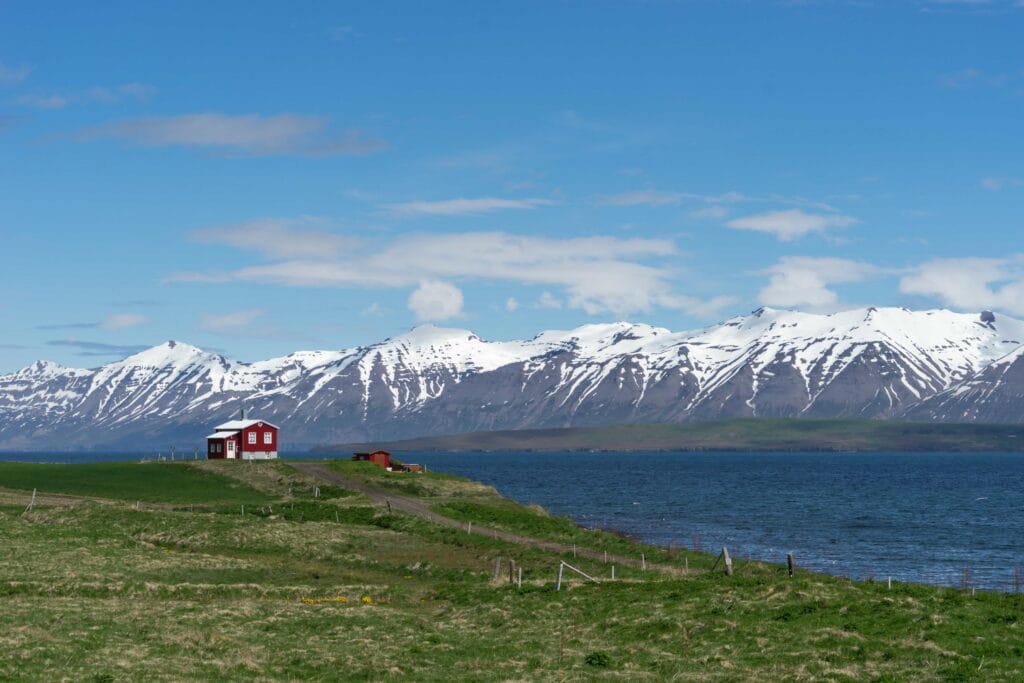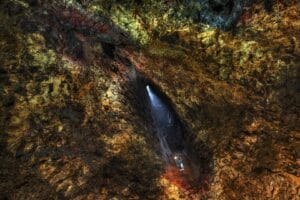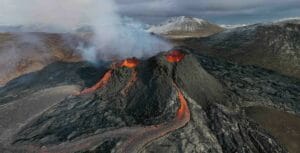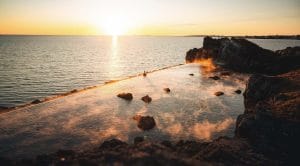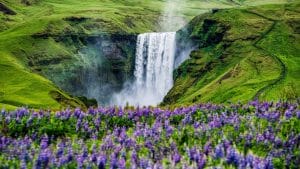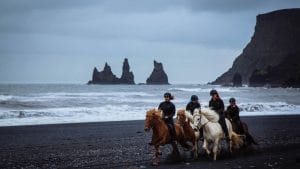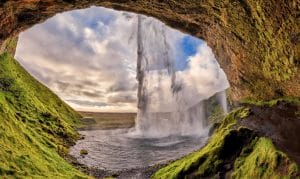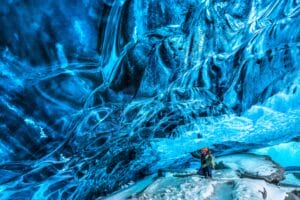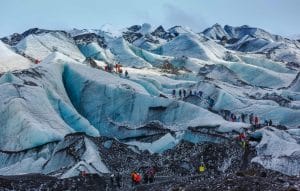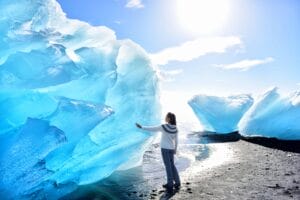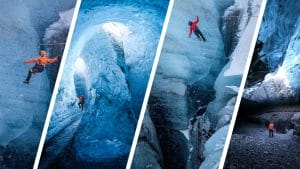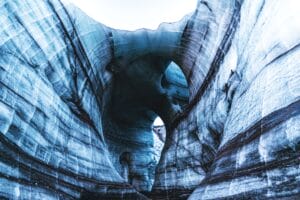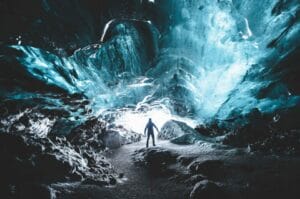Iceland is a dramatic land of breathtaking landscapes, luscious trails, vivacious glaciers, terrific trails, and tall mountains. The eye-captivating scenic beauty attracts many travelers, hikers, campers, and adventure enthusiasts throughout the year. From the great agricultural region to innumerable tourist attractions, Iceland offers a vast pool of eye-candies to everyone. Home to some remarkable natural surroundings, Iceland is popularly known as the land of fire and ice and ranked among the world’s happiest countries.
From the Blue Lagoon to Skaftafell National Park, the country offers plenty of mesmerizing sites that one can explore. As the name suggests, Iceland is a mildly cold country with four beautiful seasons. But due to unpredictable weather conditions, it is not always possible to experience everything at once. In winters, due to limited daylight, tourists often do not have access to many trails and camping sites, whereas in summer with the Midnight Sun, tourists get the chance to absorb the peeking sun throughout the day.
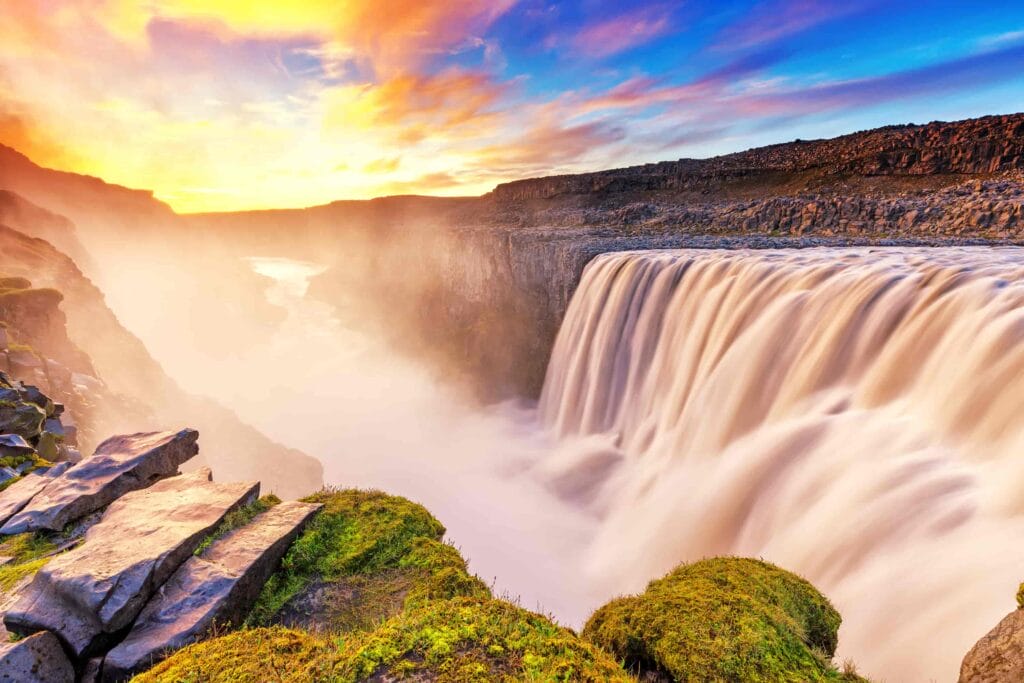
The Concept of Daylight in Iceland
Being close to the North Pole, Iceland does not have the same light pattern as any other country in the world. In summer, the country witnesses light for the whole 24-hours, which most travelers and explorers find to be a crazy phenomenon. Contrary to that, in winter, the country has daylight for just 3 to 5 hours a day. These fluctuating daylight hours add the perfect pinch of drama and character to the mesmerizing atmosphere of Iceland. Every season and month has a different daylight pattern that most people don’t understand and determine.
If you love to explore the terrific trails, tremendous rivers, massive glaciers, and green wilderness, then make sure you travel to Iceland in summer to experience everything on a long, bright, and sunny day. But if you’re all about absorbing the sparkling and shiny Northern lights and experiencing the chilly weather, then winter is a season for you with less daylight, tourists, and a lot of calm and relaxed atmosphere.
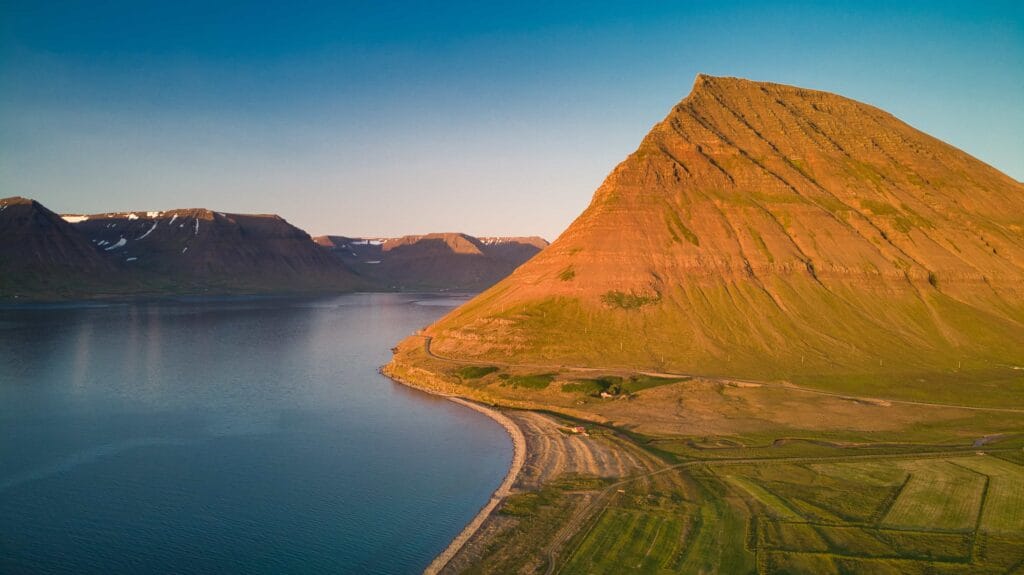
The Dramatic Midnight Sun
When talking about daylight in Iceland, it is essential to mention the natural phenomenon of the Midnight Sun, which attracts thousands of tourists from all across the globe. In summer, around June, the country experiences summer solstice, which means the longest day of the year that lasts for an almost 24-hour period. With full daylight for 24 hours, travelers, hikers, and campers leave no stone unturned to utilize the time productively to explore some great sites.
There are so many things that you can do and enjoy in the Midnight Sun that can make your trip to Iceland a memorable experience. From adventurous hiking and trekking tours to fishing and bird watching, the fun and joy of everything double up with the sun becoming a witness of your expedition. Enjoying a midnight picnic or a long walk with your loved ones amid the best of nature can only be possible in Iceland with a bright and ecstatic Midnight Sun.

With Midnight Sun Comes the Winter Solstice….
Iceland has a truly unique concept and time pattern, unlike any other country of the world. Like Midnight Sun, in winter, the country witnesses its shortest day with only 2 or 3 hours of daylight. The concept is known as Winter Solstice that usually occurs around the 21st day of December. In many parts of the country, the sun didn’t even rise during the winter solstice. The darkest day is often celebrated with glittering and sparkling Northern Lights.
People who travel to this wonderland count witnessing the winter solstice as a blessing. Many people celebrate the winter solstice as the beginning of longer, sunny days in the country, which is one perspective of looking at this incredibly unique and jaw-dropping natural phenomenon. The dramatic day never compromises on offering a thrilling experience as travelers love to explore throughout the day. The day starts and ends with experiencing an incredible blend of cold and warm breezes from Gulf Stream while watching thousands of city lights.
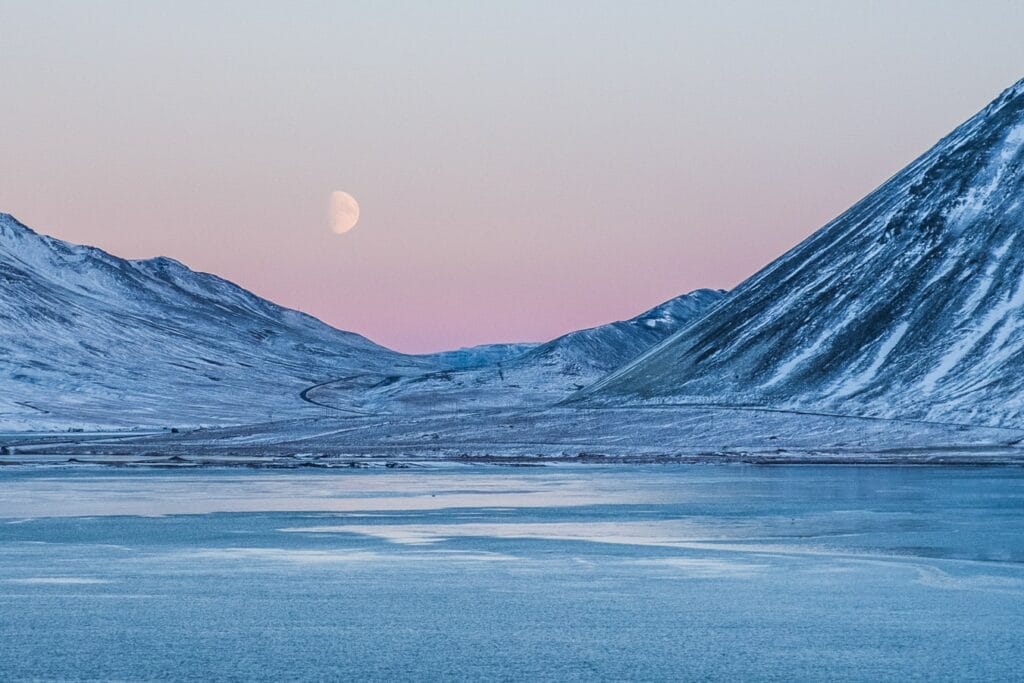
Know How Daylight Changes Every Month
Iceland is a country with contrasting and extreme weather conditions; one cannot predict the weather of this northern country. Each month has a different pattern of daylight that varies from season to season:
January
January is said to be the coldest month in Iceland that significantly affects the daylight. The extreme weather conditions result in an average of 5 to 6-hours of sunlight in the month. The sun rises late in the morning and sets in the early evening. The temperature is pretty low during this time, which is around -3 to 2-degrees.
February
By this time of the year, the sunshine or daylight hours started to increase with an average of 7 to 10 hours a day. The weather in Fefbruary can be unpredictable with rains, snowfall, freezing showers, and flurries. So, if you’re planning to travel across the terrific trails during the daylight, make sure to carry along some sturdy boots and waterproof jackets.
March
In March, the weather condition starts to get normal with melting snow and an increasing tendency of daylight. In March, the sunshine or the daylight increases for about 10 to 13 hours. This mid-winter season is perfect for traveling to the country as you will witness less snow and sloppy weather that allows you to enjoy the winter wilderness by exploring man caves and indulging in some winter sports.
April
April officially marks the beginning of the spring season, which means blooming flowers, migrating birds, and some significant amount of daylight, which is for more than 16 hours. Many travelers prefer traveling to a wonderful country in this off-season to experience the quieter and milder atmosphere with fewer tourists and commotion. If that’s your plan – April is your month.
May
May shows the early signs of the long-awaited summer season of the country. With animals out from the woodwork, beautified green wilderness, and melting snow, the country looks mesmerizing and enchanting. The daylight at this time is for more than 20 hours and sometimes remains brighter and shinier throughout the day for 24 hours.
June
June is the so-called tourist-season in the country which witness thousands of travelers, hikers, campers and explorer every year. It is the safest month to travel to this wonderful and thrilling country that allows you to witness the epic natural phenomenon, the Midnight Sun, with daylight for the whole day.
July
The daylight in July started to decrease as people experience in June. The sunshine or day remains only for around 18 hours and drop even further by the end of the month. Though July is one of the hottest months of the year in Iceland, you will still have people around you wearing jackets and coats because of unpredictable cool breezes.
August
In August, you will witness a drastic drop in the sunlight from nearly 18 hours to 14 hours in a day. With a mix of the summer and dusky & pale autumn season, the month still manages to attract many travelers with its colorful leaves and mild warm weather.
September
With daylight for about 12 to 14 hours, September marks the end of the summer season and the warm afternoon breezes. The daylight briskly shortens by the end of the month, but the warm Gulf Streams help to maintain the decent length of the day.
October
You will experience the beginning of cold breezes in October, which means less daylight for not more than 8 to 10 hours a day. The days started to get darker by the end of the month, with some heavy rainfalls and wind storms.
November
November means the beginning of the winter season, which means daylight for just 5 to 6 hours. For traveling in November, you must plan carefully because, with limited daylight, you will face difficulties in hiking through longer distances. The nights started to feel extremely cold with below-freezing temperatures.
December
December is among the darkest and coldest month of the year with minimum daylight, sometimes for just 3 to 4 hours. This is the month in which you can celebrate the unique and incredible Winter Solstice, which is the shortest day of the year.
To some extent, your trip to the mesmerizing and aesthetically appealing Iceland is not dependent upon the daylight phenomenon or pattern. Because even without proper or no sunlight, you can experience the best of nature and atmosphere in the country. The daylight only determines which path you should follow, but the activities you choose to remain entertained depends upon your mood, requirements, and needs. Be it traveling in the summer with more than 20-hours of daylight or with daylight for 3-hours, make sure to remain safe and always remember to pack along with all the necessary items and equipment for your little adventurous journey. Be it summer or extreme winter season, you can never go wrong with carrying some sturdy boots, a waterproof coat, and a warm jacket. Have a journey that is full of adventures and unpredictable moments similar to the weather and daylight condition of the enriching land of fire and ice.
